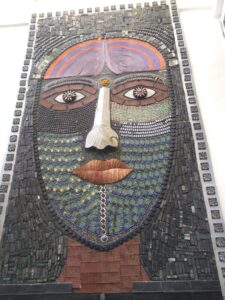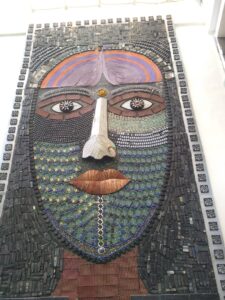Crafted Human wanted to transform Immortal
Crafted Human wanted to transform Immortal: The Quest to Transform into the Immortal
Humanity has long been fascinated with the concept of immortality, a dream of eternal life and endless possibilities. From ancient myths to modern science, the desire to transcend death and live forever has been one of our species’ most enduring pursuits. Whether driven by a fear of the unknown, the desire for power, or the longing to continue exploring the vast complexities of existence, the quest for immortality has shaped countless stories, philosophies, and even scientific endeavors.

The notion of a crafted human—one designed or altered to become immortal—brings this age-old quest into the realm of contemporary discussions about biotechnology, artificial intelligence, and transhumanism. As our technological capabilities advance, the dream of transforming mortal humans into immortal beings may seem closer than ever before. But this journey is not without its profound ethical, philosophical, and existential challenges. What does it mean to craft a human into an immortal being? How would such a transformation affect society, identity, and the very essence of being human?
In this essay, we will explore the historical and mythological origins of the quest for immortality, the emerging technologies that are driving the possibility of “crafted” immortality, and the profound implications this pursuit could have for humanity.
1. The Age-Old Quest for Immortality: Mythology and Philosophy
Before discussing modern concepts of crafting an immortal human, it’s important to consider how the idea of immortality has been perceived throughout history. Across cultures and civilizations, immortality has been a central theme in mythology, religion, and philosophy.
Immortality in Ancient Mythology
In ancient mythologies, immortality was often reserved for the gods. In Greek mythology, for instance, the Olympian gods were immortal, while humans were condemned to the finite nature of life and death. The desire to transcend this human limitation was explored in stories like that of Tithonus, a mortal granted immortality by Zeus but without eternal youth, leading him to age forever in a state of endless suffering. This tale highlights the complexities and potential pitfalls of immortality.
List of people claimed to be immortal in myth and legend – Wikipedia
Similarly, in Sumerian mythology, the legendary king Gilgamesh embarks on a journey to find the secret to immortality after the death of his friend Enkidu. Despite his heroic efforts, he ultimately learns that immortality is beyond human reach and that the legacy one leaves behind is the closest approximation to eternal life.
In ancient Chinese culture, the search for immortality was central to Taoist philosophy. Alchemists and emperors sought the elixir of life, a substance thought to grant eternal life, while others focused on meditative and spiritual practices that promised longevity or spiritual immortality.
Philosophical Reflections on Immortality
From a philosophical perspective, the quest for immortality has also been explored through the lens of human identity and the nature of existence. Philosophers such as Plato believed in the immortality of the soul, arguing that the soul existed before birth and would continue after death. Plato’s concept of immortality, however, was not tied to the physical body but rather to the enduring nature of the soul.
On the other hand, existentialist philosophers like Jean-Paul Sartre and Martin Heidegger emphasized the finite nature of human life as a defining characteristic of existence. For them, the awareness of death was central to understanding the meaning of life. The desire to live forever, in their view, might strip life of its significance, as the limits imposed by mortality give life urgency and purpose.
2. The Science of Immortality: Crafting the Human Body and Mind
While immortality has traditionally been the domain of myths and philosophical speculation, advances in science and technology are bringing the dream of eternal life closer to the realm of possibility. The notion of the crafted human—a person whose body and mind are engineered for immortality—emerges from the intersection of several key scientific fields, including biotechnology, artificial intelligence (AI), and nanotechnology.
Biotechnology and Life Extension
One of the most promising avenues for achieving immortality lies in biotechnology, particularly through advances in genetics, cellular biology, and regenerative medicine. Scientists are already working on ways to extend human life by combating the aging process at a cellular level. Key areas of research include:
- Telomere Extension: Telomeres, the protective caps at the ends of chromosomes, shorten each time a cell divides, contributing to aging. Researchers are exploring ways to extend telomeres, potentially halting or even reversing the aging process.
- Stem Cell Therapy: Stem cells have the ability to regenerate damaged tissues and organs, and researchers hope to use stem cell therapy to repair age-related degeneration in the body.
- Genetic Engineering: Advances in CRISPR technology allow scientists to edit the human genome, potentially eliminating genetic diseases and enhancing longevity by targeting genes associated with aging.
These approaches aim to extend the human lifespan, with some scientists suggesting that we may soon reach “biological immortality”—a state in which the body no longer ages or deteriorates. However, even with advances in life extension, crafting a truly immortal human would require more than just slowing or halting aging.
Nanotechnology and Body Augmentation
Nanotechnology offers another potential path to immortality by enabling the creation of microscopic machines that can repair and maintain the human body at the cellular level. These “nanobots” could potentially repair damaged DNA, clear out harmful cellular waste, and eliminate cancer cells before they grow. In theory, this could allow humans to live indefinitely in perfect health.
Beyond cellular repair, nanotechnology could also be used to enhance the human body in other ways, such as creating stronger, more durable tissues or improving cognitive abilities. Cyborg technologies, which involve integrating mechanical components into the human body, could further enhance human resilience, potentially creating beings that are part biological, part mechanical.
Mind Uploading and Digital Immortality
Perhaps the most radical approach to crafting an immortal human involves the idea of mind uploading, in which a person’s consciousness is transferred to a digital medium. This concept, often explored in science fiction, envisions a future where human minds can be preserved in digital form, free from the limitations of the biological body.
Mind uploading would require mapping and replicating the brain’s complex neural networks in a computer system, allowing the mind to continue functioning independently of the physical body. Proponents of this approach argue that digital immortality could allow humans to exist indefinitely in virtual worlds or even be transferred into new, artificial bodies.
While mind uploading raises profound questions about the nature of consciousness and identity, it also presents the possibility of crafting humans who are no longer bound by the constraints of biology and mortality.
3. The Ethical and Philosophical Implications of Immortality
The possibility of crafting immortal humans raises a host of ethical, philosophical, and existential questions. While the desire to live forever is understandable, the consequences of achieving immortality could fundamentally alter the fabric of society and the human experience.
Ethical Concerns
One of the most pressing ethical concerns surrounding immortality is the issue of inequality. If the technology to extend or indefinitely preserve life becomes available, it is likely that only the wealthy or privileged will have access to it, potentially exacerbating existing social and economic inequalities. Immortality could create a society where a small elite lives forever, while the majority of humanity continues to age and die.
Additionally, the prospect of living indefinitely could strain natural resources and contribute to overpopulation. Without the natural cycle of birth and death, the planet’s ecosystems could be put under immense pressure, leading to environmental degradation and societal collapse.
There are also ethical questions related to identity and autonomy. For example, if a person’s mind is uploaded into a computer or transferred into an artificial body, does that being retain the original person’s identity, or is it a new entity entirely? Who would have control over these digital selves, and what rights would they have?
Philosophical Reflections
From a philosophical perspective, immortality challenges fundamental assumptions about the human condition. Many philosophers argue that the awareness of death is what gives life meaning. Without the prospect of death, the urgency to live fully, make meaningful choices, and leave a legacy might diminish.
Friedrich Nietzsche’s concept of eternal recurrence—the idea that life is valuable because it is fleeting and can never be repeated—suggests that immortality could strip life of its beauty and significance. Similarly, existentialist thinkers like Albert Camus argue that the awareness of death forces humans to confront the absurdity of life and create their own meaning in a finite existence.
In contrast, proponents of immortality argue that living forever would allow humans to explore new depths of knowledge, creativity, and experience. Without the limitations of time, humanity could continue to evolve and grow, pushing the boundaries of what it means to be alive.
4. The Future of the Crafted Immortal: Utopia or Dystopia?

As we stand on the cusp of potentially crafting immortal humans, it is important to consider the long-term implications of such a transformation. Will immortality lead to a utopian future, where humans transcend suffering and achieve new heights of enlightenment? Or will it result in a dystopia, where the quest for eternal life comes at the cost of humanity’s soul?
Utopian Visions
In a utopian vision of the future, crafting immortal humans could lead to unprecedented advances in science, art, and culture. Freed from the constraints of mortality, humans could explore the far reaches of space, uncover the mysteries of the universe, and continue to evolve intellectually and spiritually. Immortality could allow for deeper relationships, longer-term projects, and a more profound connection to existence itself.
In this idealized future, immortality would be accessible to all, creating a society where every individual has the opportunity to live indefinitely in health, happiness, and harmony with nature.
Dystopian Realities
On the other hand, the pursuit of immortality could lead to a dystopian reality where society becomes stratified, with an immortal elite ruling over a mortal underclass. The quest for eternal life could drive people to extreme measures, such as sacrificing their individuality, autonomy, or even humanity in the process.
Without the natural cycle of life and death, society could stagnate, with immortal beings clinging to power and preventing new generations from emerging. Immortality could also result in profound psychological challenges, as individuals grapple with the existential weight of living forever, potentially leading to ennui, despair, or loss of meaning.
Conclusion: The Paradox of Immortality
The quest to craft an immortal human is a paradoxical one. While the dream of living forever is enticing, it also presents profound challenges to our understanding of life, identity, and purpose. Whether immortality will lead to a utopian future of endless growth and exploration, or a dystopian nightmare of inequality and existential despair, remains to be seen.
As we continue to explore the possibilities of extending human life, it is crucial that we consider the ethical, philosophical, and societal implications of immortality. In the end, the pursuit of immortality may teach us as much about what it means to live as it does about the desire to transcend death.
Fairy Lotus (newfashiondesigns.com)
Miracle Stone (newfashiondesigns.com)
How does Peacock crafting react to the people? (newfashiondesigns.com)
5 Secret of Stylish makes perfect looks (newfashiondesigns.com)